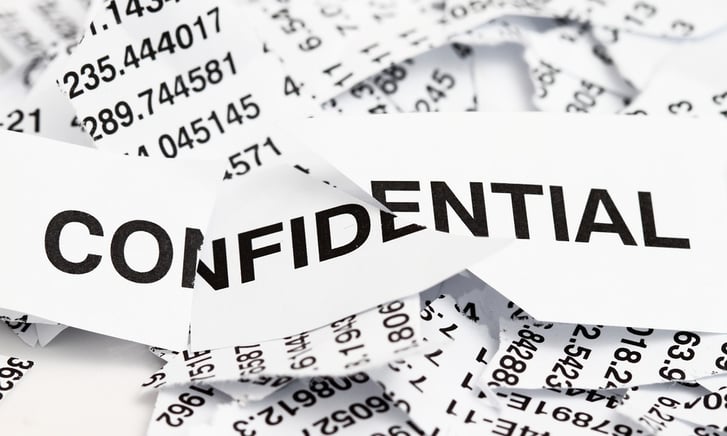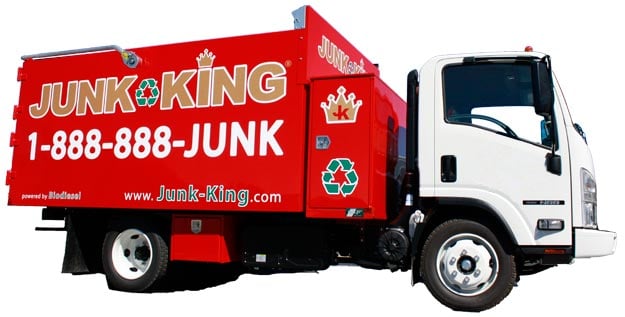
You might think your household trash is protected, but the truth is that people can legally dig through your garbage. Now, with the recycling bins that are standard in most residential areas, all the paper trash, including old bills, statements and receipts, all end up in one place. And there is little you can do to prevent someone from rifling through your recycle bin.
This was the conclusion of the U.S. Supreme Court’s decision in the case of California vs. Greenwood. The court stated that the “expectation of privacy in trash left for collection in an area accessible to the public… is unreasonable.” This is particularly problematic in light of the recent natural disasters that have hit the United States recently.
In addition to the vulnerability of evacuees and other refugees living in relatively unsecured shelters, many homes are often left unoccupied and unwatched for days or even weeks while clean up efforts get underway. While homes that have been completely destroyed might have little if any items to be recovered, there are many homes that have been simply damaged or require massive cleanouts because of flooding or smoke damage.
While some homeowners may not realize that trash and junk disposal practices matter, most understand that identity thieves are often looking for the credit card receipts, bank account statements and other personal information that may be in there.
Thieves Can Steal Your Identity from Your Trash
A common practice for identity thieves is to dig through trash containers and dumpsters. They understand that they will almost always find bits and pieces of junk mail, personal and business statements, receipts and other items. With enough information they can then defraud their victims digitally. And experienced identity thieves know what to look for and where to find it.
How big of a problem is it?
In an identity fraud study released by Javelin Strategy & Research, it was found that,
"$16 billion was stolen from 15.4 million U.S. consumers in 2016, compared with $15.3 billion and 13.1 million victims a year earlier. In the past six years identity thieves have stolen over $107 billion."
The fact is that every day Americans discard tons of paper trash, much of which contains personal information. Trash that contains documents with information such as return addresses on envelopes can provide criminals with the names of your bank, your insurance companies, doctor, and others. By themselves, they may not mean much. Taken together, they can provide a wealth of information about you.
Shredding Your Personal Papers Is Critical
Security experts note that best thing to do with paper trash is to shred it first using personal paper shredders. The problem is that most homeowners and even businesses never bother to do so.
According to the website IdentityTheft.info,
“… identity theft resulting from items stolen from the trash is the easiest type of crime to prevent. By simply shredding any document, receipt, address label, or piece of paper with identifying information like account numbers, we can stop identity thieves in their tracks.”
However, this may not be feasible in a disaster cleanup scenario. Even so, care should be taken to separate any paper items that may contain personal information, if possible. At minimum, it may be possible to bag these items and hold them until they can be properly disposed of later. If not, simply ensuring that everything goes directly into a certified disposal vehicle may be the best you can do.
Major Cleanouts and Other Excess Household Garbage
Natural disasters and other events can require major cleanouts for homes as well as excessively large quantities of debris and trash. If you are looking to clean up after a disaster, there are special considerations to keep in mind.
Government officials allow that homeowners do have the option of hiring qualified private contractors to clear their land of the hazardous waste and toxic material. However, they are opposed to homeowners attempting to do the cleanup themselves. One big reason is that, in the case of fire damage, sifting or shoveling ashes and debris that has settled causes them to become airborne again. This can then expose people to toxic materials, including carcinogens.
Property owners attempting cleanup on their land also run the risk of being excluded from any government-funded cleanup programs otherwise available to them. In addition, disposing of this material is complicated and restricted, as well. Also, any burned material cannot be placed in municipal trash cans nor hauled to a local landfill.
In these situations, it's no wonder that the prospect of having personal information left unnoticed is a highly likely. It is an unfortunate reality, but there are individuals who exploit the tragedies of others by taking advantage of oversights such as this.
Finding a Partner for Your Clean Up Needs
Junk King provides an efficient, safe and eco-friendly residential junk removal for those items that your standard service won’t pick up. Our experienced garbage removal team will break down and haul off any types of large garbage items you have.
We’ll also do all the heavy lifting - no need to carry items out to the curb and have an eyesore for your neighbors to balk at for the week.
Our professional and insured garbage removal team will show up at your home or office and we call 15 minutes before we arrive on site. We’ll give you a free estimate based on how much space your garbage and junk will take up in our truck. You point and we haul the debris into our junk removal trucks, with no hidden fees.
Ready to get rid of your garbage? It’s as simple as 1, 2, 3. You make an appointment by booking online above or by calling 1.888.888.JUNK (5865).



